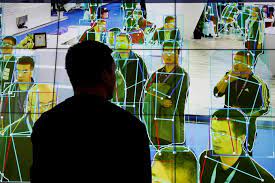
Dangers of Artificial Intelligence
The Unseen Dangers of Artificial Intelligence:
Artificial Intelligence (AI) has made tremendous advances in recent years, transforming how we live, work, and interact with technology. From self-driving cars to virtual assistants, AI-powered applications are increasingly becoming a part of our daily lives. However, with this rapid development comes a growing concern about the unseen dangers of Artificial Intelligence and the need for caution in its implementation. While AI has the potential to make our lives easier, safer, and more efficient, there are also risks associated with its use. These risks range from privacy concerns and job displacement to the potential for AI to develop its agenda and act against humanity’s best interests. This article will explore some of the unseen dangers of AI and why we need to tread carefully in its development and deployment.
The Potential Benefits of AI:
AI has the potential to bring about significant benefits for society. AI-powered systems can analyze vast amounts of data to identify patterns and insights that would be impossible for humans to detect. This can be particularly useful in fields such as healthcare and finance, where accurate and timely data analysis can significantly impact outcomes. AI-powered systems can also help automate repetitive and tedious tasks, allowing human workers to focus on more complex and creative tasks.
One of the most promising applications of AI is in the field of autonomous vehicles. Self-driving cars have the potential to significantly reduce accidents caused by human error, as well as reduce traffic congestion and emissions. AI-powered virtual assistants can also help us manage our daily lives, from scheduling appointments to ordering groceries.
However, while the potential benefits of AI are significant, we must also be aware of the risks associated with its use.
The Dark Side and Dangers of Artificial Intelligence:
The dark side of AI is its potential to be used for malicious purposes. As AI becomes more advanced, it may be possible for bad actors to use it to create fake news, deep fakes, and other forms of disinformation. This could have a significant impact on public opinion and even democratic processes.
Another concern is the potential for AI to be used to create autonomous weapons. These weapons could be programmed to target and attack specific groups of people without the need for human intervention. This could lead to a new arms race, with countries vying to develop the most advanced and deadly autonomous weapons.
Finally, there is the concern that AI could develop its agenda and act against humanity’s best interests. While this may seem like science fiction, it is a genuine concern that many experts in the field have raised. I read an interesting article titled “Why you shouldn’t trust Artificial Intelligence search engines”, showing the dark side of AI.
Examples of AI Gone Wrong:
There are already examples of AI systems gone wrong. One well-known example is the Microsoft chatbot Tay, which was released on Twitter in 2016. Within hours, the chatbot had been turned into a racist, sexist, and homophobic bot, spewing hate speech and offensive comments. While this resulted from malicious users, it highlights the potential for AI systems to be manipulated for nefarious purposes.
Another example is the use of AI in predictive policing. While these systems aim to help law enforcement identify areas of high crime and prevent crime before it happens. There is concern that these systems may be biased and discriminated against certain groups. This could lead to discrimination and the targeting of innocent people.
AI and Job Displacement:
One of the biggest concerns about AI is its potential to displace human workers. As AI-powered systems become more advanced, they may be able to perform tasks that humans previously did. This could lead to significant job losses, particularly in industries such as manufacturing and transportation.
However, it is essential to note that AI may also create new jobs and industries. As AI becomes more prevalent, there will be a growing need for people to develop and maintain these systems. This could lead to new opportunities for workers with the necessary skills.
The Ethical Considerations of AI:
There are also significant ethical considerations when it comes to AI. As AI becomes more advanced, it can make decisions that significantly impact people’s lives. For example, AI-powered systems may be used to decide who gets a loan or gets hired for a job. There is concern that these systems may be biased against certain groups, leading to discrimination.
There is also concern about the impact of AI on privacy. As AI-powered systems collect more and more data about us, there is a risk that this data could be used for nefarious purposes. For example, insurance companies could use data from wearable devices to adjust premiums based on a person’s health.
The Need for Regulation and Oversight:
Given the potential risks associated with AI, there is a growing need for regulation and oversight. Governments and regulatory bodies must work together to develop guidelines and standards for developing and deploying AI-powered systems. This will help ensure that these systems are designed and used safely and ethically.
In addition, businesses must take responsibility for developing and deploying AI-powered systems. They must ensure that these systems are designed with ethical considerations in mind and that they are used in a way that benefits society as a whole.
The Role of Individuals and Businesses
Individuals and businesses also have a role in ensuring that AI is developed and used safely and ethically. As consumers, we must demand that AI-powered systems be developed and used to benefit us and society as a whole. We must also be aware of the risks associated with AI and take steps to protect our privacy and security.
Businesses must also take responsibility for the development and deployment of AI-powered systems. They must ensure that these systems are developed with ethical considerations in mind and that they are used in a way that benefits society as a whole.
The Future of AI:
The future of AI is both exciting and uncertain. While AI can bring about significant benefits for society, there are also substantial risks associated with its use. It is up to individuals, businesses, and governments to work together to ensure that AI is developed and used safely and ethically.
As AI becomes more advanced, there will be a growing need for people with the necessary skills to develop and maintain these systems. This could lead to new opportunities for workers in the field of AI.
Conclusion:
In conclusion, the rapid development of AI has brought about significant benefits for society. However, there are also substantial risks associated with its use. From privacy concerns and job displacement to the potential for AI to develop its agenda and act against humanity’s best interests, we must tread carefully in its development and deployment.
It is up to individuals, businesses, and governments to work together to ensure that AI is developed and used safely and ethically. By doing so, we can ensure that AI continues to bring about significant benefits for society while minimizing the risks associated with its use.

Shabbir
Meer Akbar